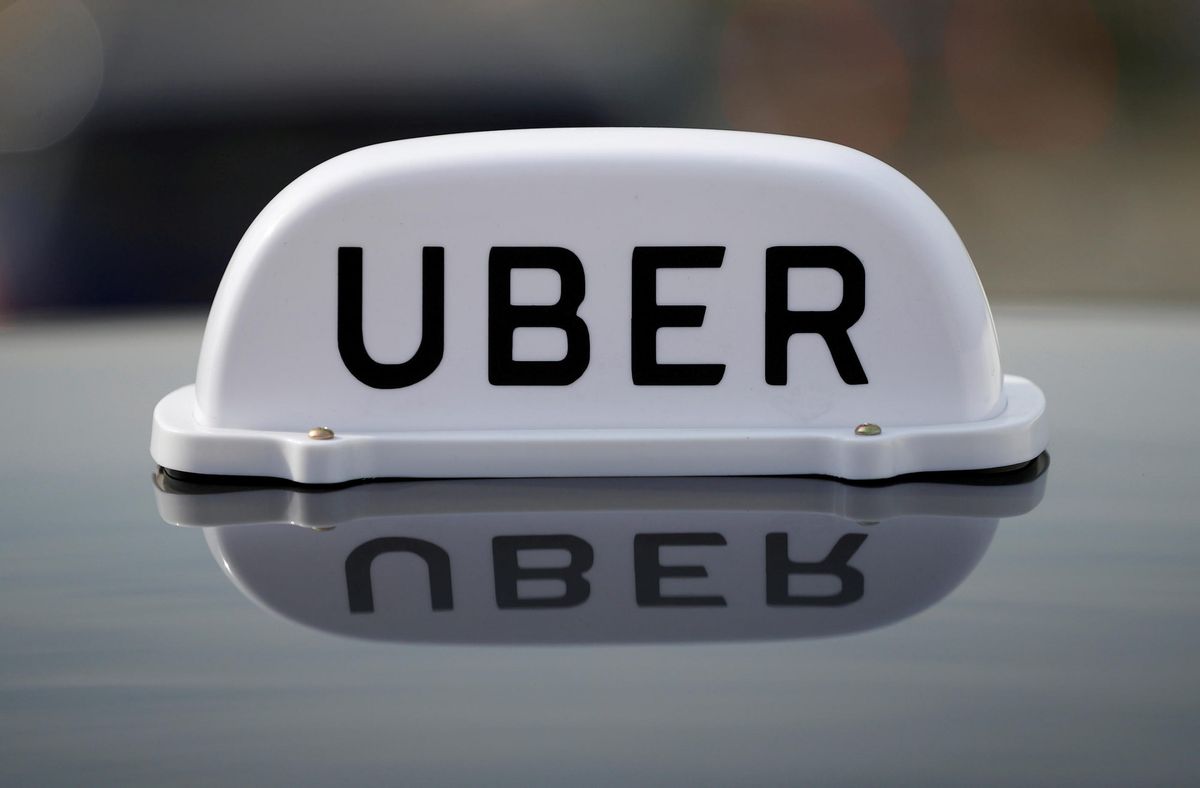Uber drivers declared “workers” in the UK. What does this mean for the “gig economy?”

A few minutes every morning is all you need.
Stay up to date on the world's Headlines and Human Stories. It's fun, it's factual, it's fluff-free.
The ruling could be transformative for Uber’s business not just in the UK, but worldwide.
The United Kingdom’s Supreme Court has delivered a devastating ruling for Uber Technologies, Inc., declaring its drivers to be “workers” and, in the process, entitling thousands of drivers in the UK to minimum wage and other rights.
The ruling, which originated in a 2016 employment tribunal in which two former drivers argued they “worked” for Uber, could be transformative for Uber’s business not just in the UK, but worldwide.
Uber faces challenges over its classification of its drivers in most of its world markets. A French court similarly declared an Uber driver an “employee” as opposed to a “self-employed partner” in March 2020, reflecting growing scrutiny of Uber’s employment practices.
Not all challenges have been successful, however. The company, alongside fellow gig startup company Lyft Inc., was on the winning side of California’s Proposition 22 in November 2020, which continued the classification of their drivers as “independent contractors” and not “workers” or “employees.”
Nevertheless, challenges remain for Uber. Alongside the explosive worker classification debate, questions loom over Uber’s business, particularly around the company’s profitability, which remains a far-flung and seemingly unachievable prospect.
Workers’ rights
Scrutiny over how the San Francisco-based ride-hailing giant classifies its drivers has received growing scrutiny in recent years.
Legislators in the state of California, where Uber is based, passed a law in 2019 popularly known as “AB5.”
The law instituted a criteria which must be met for a worker to be defined as an “independent contractor.” Under the guidelines, Uber and Lyft drivers would have been classified as “employees,” not “contractors.”
In the face of this scrutiny, Uber has long maintained it is a “technology company,” not a transportation company that has its own “workforce.” Uber maintains that it simply provides a platform for independent contractors to offer their services to the public, without creating any meaningful ties between the ride-hailing giant and its drivers.
At issue is the cost that would be imposed on Uber should its fleet of drivers be classified as “workers.” Employees classified as “workers” typically enjoy more rights than those deemed “independent contractors,” such as minimum wages, holiday pay, benefits and more.
In the end, Uber avoided this eventuality. During the November 2020 elections, California voters also decided the fate of “Proposition 22,” which proposed to continue the classification of drivers for ride-hailing companies as “independent contractors,” not “employees,” though with some minor additional benefits.
Voters approved the measure, following a public-relations campaign in which Uber, Lyft and other tech companies had spent upward of US$200 million in support of the measure.
UK ruling
But challenges evidently remain for Uber and other, similar “ride-hailing” companies.
The UK Supreme Court’s recent decision to classify Uber drivers as “workers” and not as self-employed or independent contractors could fundamentally upend the core of Uber’s business.
James Farrar, the general secretary of the App Drivers & Couriers Union (ADCU) and one of the original plaintiffs in the 2016 employment tribunal, told the BBC that the decision was “a win-win-win for drivers, passengers and cities.”
“It means Uber now has the correct economic incentives not to oversupply the market with too many vehicles and too many drivers. The upshot of that oversupply has been poverty, pollution and congestion,” Farrar argued.
According to Daniel Ives, an analyst with Wedbush Securities, “this case could set a precedent for other workers and companies in the gig economy throughout the U.K. and Europe, which would be a body blow to the overall ecosystem.”
The ruling is all the more dangerous for Uber given the precarious foundations the wider “gig economy” rests upon. Gig giants such as Uber and Lyft are not profitable, with Uber alone witnessing a loss of US$968 million for the fourth quarter of 2020, with profitability seemingly out of reach.
A reclassification of drivers as “workers” seems poised to drive up labor costs for gig companies, mounting additional losses on an already loss-burdened industry.
The ruling by the UK Supreme Court may not be the last. Additional claims against other companies engaged in the hiring of “independent contractors” or “freelance workers” may arise across Europe and accelerate in the United States.
Though efforts to force a change in Uber’s employee classification in the US were stymied by California’s Prop 22 in November, they have by no means been extinguished. Uber’s practices remain in the public eye and up for debate between lawmakers across the US.
Uber’s continued loss-making highlights the precarious nature of the gig economy as a whole, which may now begin to see a drastic overhaul in some corners of the world in the wake of the UK Supreme Court’s ruling.
Have a tip or story? Get in touch with our reporters at tips@themilsource.com




Comments ()